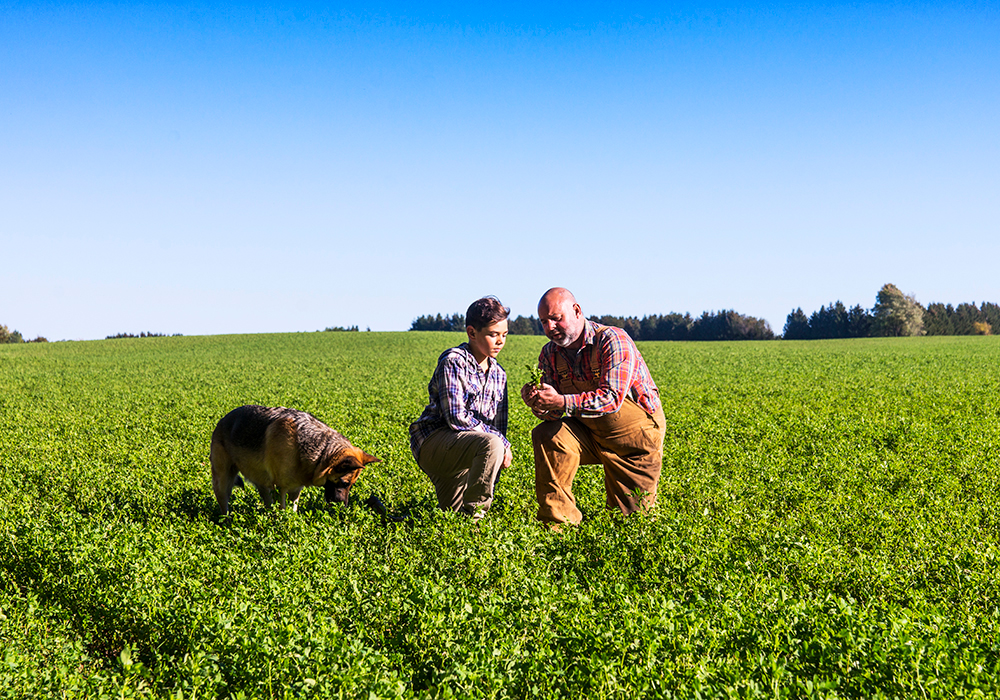Succession planning options for farming corporations are set to change by the end of 2023.
When business owners and farmers have an incorporated business, the ability to use the lifetime capital gains exemption on a sale to a third party or on a succession of the business to the next generation in the family provides a substantial tax benefit.
Historically, the capital gains exemption could only be used on a sale to a third party and could not be used on a transfer of the business or farm to a child without negative tax consequences due to certain anti-avoidance rules contained in the Income Tax Act (Canada). Exceptions to these anti-avoidance rules, intended to address family business succession scenarios, were created by the federal government in 2021 through the passing of a private members bill known as Bill C-208.
Read Also

High prices see cow-calf producers rushing to incorporate
Farm accountants are reporting a steady stream of cow-calf producers rushing to get their operations incorporated ahead of selling their calves this fall.
The welcome result of Bill C-208 was that farmers could transfer the shares of their farming corporation to the next generation with the same favourable tax rules that would apply on the sale of the farming corporation to an unrelated party.
Shortly after these rules were introduced by the federal government, CRA identified that there are a number of ways these rules could be inappropriately applied. The federal government indicated changes to these rules would be coming, but the rules would remain in place until the changes were announced. For more information on this topic, visit www.producer.com/news/beneficial-tax-rules-still-exist-at-least-for-the-time-being.
On March 28, when the 2023 federal budget was released, it included the long-awaited proposed changes to Bill C-208. The stated intention of the federal government with these changes is to “amend the rules introduced by Bill C-208 to ensure that they only apply where a genuine intergenerational business transfer takes place.”
As a result of trying to tighten the rules to prevent them from applying in scenarios where no genuine business transfer takes place, much of the flexibility a business owner currently has for a genuine business transfer using the exceptions in Bill C-208 is being taken away.
Specifically, the flexibility has been lost when it comes to determining how and when producers pass on their business operation when they want to use the capital gains exemption as part of their succession plan.
As a few examples, changes to the Bill C-208 rules restrict flexibility in the following ways:
- There are mandated timelines for when you must give up control of the business, both in terms of voting control of the corporation and surrounding circumstances that would allow you to influence the business operations and management.
- There are mandated requirements with respect to transferring the common shares representing the growth in the business, which restrict your ability to bring a child (which is defined to include a niece or nephew) into the business while maintaining a significant ownership interest.
- There is a requirement that your child retains control of the corporation for a certain period after the transfer of shares to them.
- There is a requirement that at least one child is actively engaged in the business operation of the farm, which means that if you have a farm that is largely operated by hired staff, you may be restricted in transferring ownership to a child who wishes to own the family business but is not actively involved in the day-to day-operations.
Two types of transfers may take place under the proposed amended rules: an immediate transfer and a gradual transfer.
An immediate transfer involves certain steps occurring on the date of the sale and certain other tests and steps to be met or completed within no longer than 36 months.
A gradual transfer involves other tests and steps that can be met or completed up to 10 years from the date of the sale. Depending on the method that the sale transaction is implemented, the planning for these transactions will require consistent follow-up for up to 10 years from the sale date. This also means that the transaction may be subject to CRA scrutiny on a reassessment for a period that is 10 years longer than the normal reassessment period.
None of these restrictions apply to transactions completed pursuant to the Bill C-208 rules before Jan. 1, 2024, so until the end of 2023 it is possible to complete a transaction under the more flexible current rules.
If you are considering a succession or transition of some or all of your farming corporation to the next generation, it would be advisable to discuss this with your tax adviser to determine if anything should be implemented before the end of 2023 to use the current rules.
Not only do you have more flexibility, but the period where the transaction can potentially be reassessed by CRA is also shorter, providing you with peace of mind from potential tax audits or reassessment in a shorter time frame.
Whenever considering your succession plan, it is important to remember that there are often other circumstances where farmers may use the lifetime capital gains exemption, such as on the transfer (either during your lifetime or on death) of qualified farm property, which includes farmland or shares of a family farm corporation.
As such, the Bill C-208 rules, in their current form or in their amended form as of Jan. 1, 2024, are just one planning option available, and all individual circumstances should be considered by your team of advisers before implementing a transaction.
Greg Kirzinger is a corporate, real estate and tax lawyer and partner with Stevenson Hood Thornton Beaubier LLP in Saskatoon. Contact him at gkirzinger@shtb-law.com. This article is provided for general informational purposes only and does not constitute legal or other professional advice and does not replace independent legal or tax advice.















